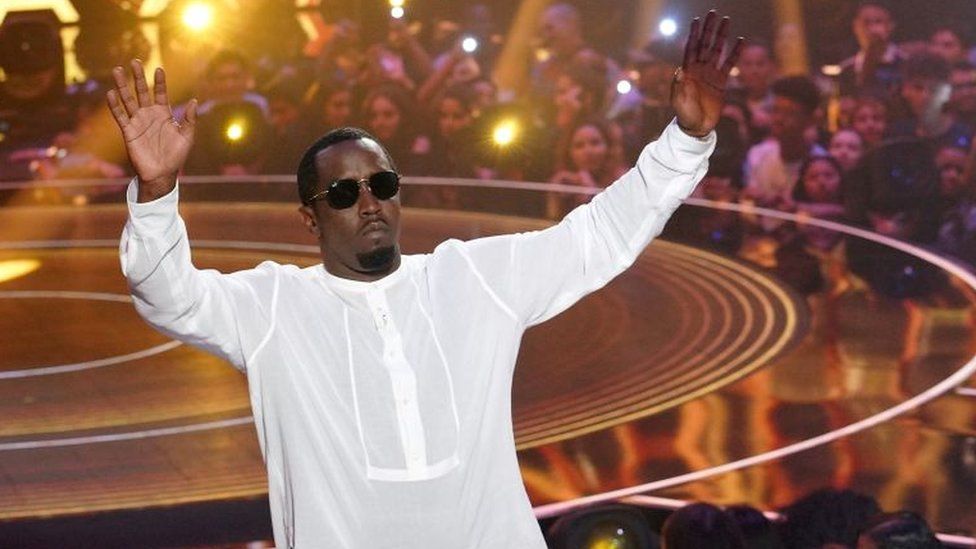The Rock n’ Roll Hall of Fame is haunted by stories of sexual abuse, violence, and penchants for underage groupies, nonetheless, their portraits are hung, and the light of their legacies remains undimmed in popular culture. ‘Icons’ such as Bowie and Jimmy Page are still revered in a so-called era of cancel culture which sees the media peddling stories of fresh allegations for profit and forcing fans to wonder what role they should play in holding artists accountable.
The ongoing debate about how to deal with musicians who have committed abuse has come up once more after distressing video footage of rapper Sean “Diddy” Combs attacking his then-girlfriend Cassandra Ventura in a hotel in 2016 was released by CNN. In the previous year, Combs settled a lawsuit filed by Ventura, which accused him of a decade-long pattern of sexual and physical violence.
We have already seen that music fans are all too happy to turn a blind eye to the dark side of their sonic deities if it means that they can enjoy their music in a guilt-free capacity, but do we have a duty to banish abusive and exploitative artists from our playlists and record collections? Do music fans have a role to play in enforcing accountability and pushing society away from a culture which gives famous artists free passes to enact their abusive tendencies? Will there ever be a concrete and definitive answer to the age-old question, can the art be separated from the artist?
Why Is It Significant If Artists Are Abusive?
High-profile cases of sexual abuse significantly shape public perceptions of gender-based violence. Unfortunately, discussions in the media and among fans struggling to let go of their loyalty often attempt to diminish the instances of abuse by referring to sexual violence as simply ‘sex’ or blaming the victims for their experience.
In a time when gender-based violence is critically high in many regions and figures such as Andrew Tate are helping to normalise misogyny, the portrayal of Combs’ actions and society’s reaction can deeply influence our tolerance for such behaviour and whether those who commit violence are held accountable.
Historical Perspective
Musicians have long been implicated in gender-based violence and domestic abuse, yet they have often been protected by the industry. Historically, such behaviour was hidden behind the toxic “sex, drugs, and rock’n’roll” persona or excused as part of the artist’s “genius.”
During the #MeToo movement, many women shared their stories of abuse, assault, and sexual harassment involving well-known artists, directors, and actors. Despite this, abuse prolifically persists, with some artists and record labels using legal strategies to suppress information and silence survivors to protect their status and income. These strategies include quick settlements with non-disclosure agreements and defamation lawsuits aimed at safeguarding the artists’ reputations and commercial interests. The effectiveness of these tactics is seen in how long some artists’ abusive behaviours remain “open secrets” until undeniable evidence surfaces.
Reactions of Fans
Fans’ reactions to allegations of misconduct vary widely. Some believe they can separate the artist from their actions, maintaining that the artist’s personal behaviour does not affect their enjoyment of the music. Others view the artist and their work as inseparable and choose to stop listening to their music, discarding any related merchandise and memorabilia. For these fans, discovering such allegations can deeply impact their identity, especially if they had a strong connection to the artist’s work.
Jenessa Williams has conducted ample research into cancel culture, examining how race and genre shape perceptions of perpetrators, reporting that hip-hop fans can be more forgiving and sympathetic. Williams also noted how the response to Tom Meighan of Kasabian physically abusing his fiancé became definitive proof of fan loyalty being taken more seriously than victimhood. She also elucidated how fans can go into ‘denial’ phases of shock when allegations initially surface, highlighting how hard some fans can be hit by news of their idols falling from grace. It is clear that no free passes should be given in the wake of sexual violence. However, what remains unsettled is the question of should artists, after they have faced the consequences of their actions, be welcomed back into the music industry and the public sphere with cautiously open arms?
Shaping the Narrative
Fans have the power to shape the narrative. They can either minimise and excuse the actions of violent perpetrators and the industry that supports them, or they can stand in solidarity with survivors. Refusing to listen to the music of abusive artists can be a powerful political statement. However, since many fans continue to listen, it is essential to do so with an awareness of the broader social and political context in which violence occurs.
If you can’t unchain yourself from the music, listen without excusing or ignoring the artists’ violence, genuinely engage with survivors’ experiences, and challenge the music industry’s complicity. This involves incorporating survivors’ stories into the histories of these artists to ensure their misdeeds are not forgotten. We can acknowledge an artist’s work or achievements while holding them accountable for their actions and ensuring that survivors’ stories remain in focus.
The Need for Structural Change
Individual fans alone cannot hold artists accountable. There is an urgent need for structural change within the music industry to ensure that perpetrators of gender-based violence are no longer given a “free pass” and to prevent the normalisation of violence within the industry. As in broader society, there is still much work to be done to address these issues.
Article by Amelia Vandergast

